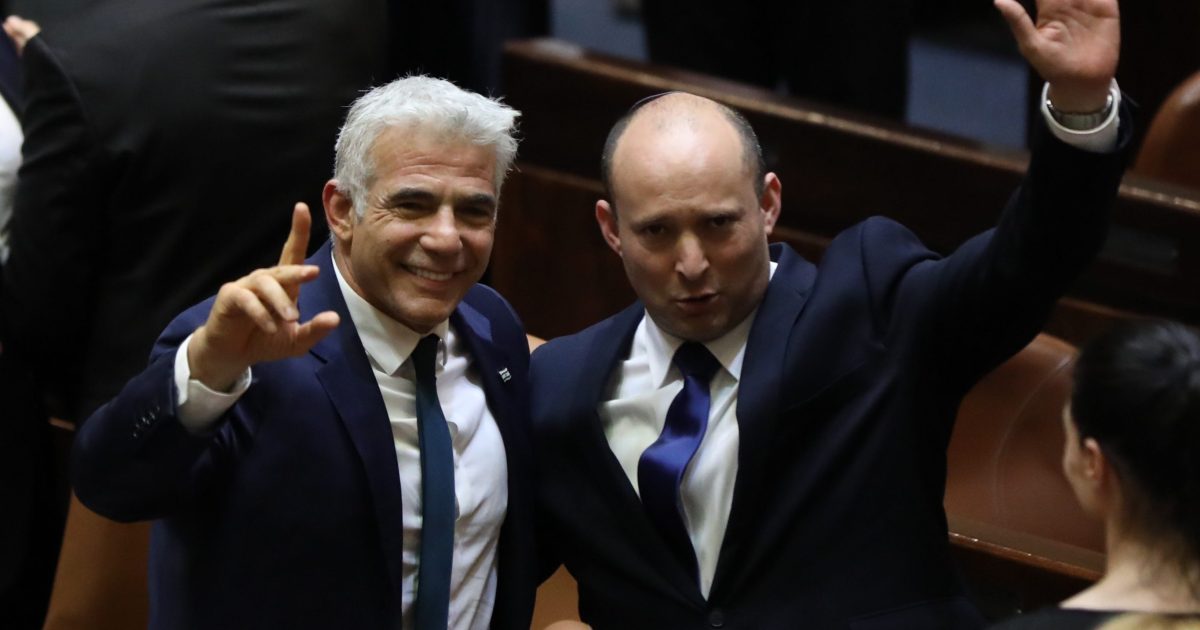This post may refer to COVID-19
To access official information about the coronavirus, access CDC - Centers for Disease Control and Prevention.

www.aljazeera.com
Questions remain for precarious Israel gov’t – and Netanyahu
Ideological differences are enormous in the new government, which primarily came together to end Netanyahu’s long rule.
Politics
With a vote in favour of a new coalition led by Naftali Bennett, the Israeli parliament ushered in the end of an era.
After 12 years, Benjamin Netanyahu finds himself in the opposition.
However, questions over the new government’s fragility remain. The same applies to Netanyahu, who is unlikely to merely disappear into irrelevance, even though he will have to balance his aspirations for a return and his legal issues simultaneously.
The margin for error was rather narrow, but the new coalition obtained the required votes. Sixty of the 120 Knesset members voted in favour of the new government (one abstained), led by Bennett from the Yamina party and Yair Lapid from Yesh Atid.
According to the coalition agreement, which includes rotation of the prime minister post, Bennett will remain in office until August 2023 before Lapid succeeds.
The new government consists of eight parties, which range from the left to the far right. In addition, for the first time a Palestinian party, the United Arab List (Hebrew acronym Ra’am), is also a member of a government coalition.
The ideological differences are accordingly enormous in the new government, which primarily came together for one reason, Yaniv Voller, senior lecturer in Politics of the Middle East at the University of Kent, told Al Jazeera.
“The coalition was born for one main purpose – to bring Netanyahu’s rule to an end. Members of the coalition share one thing in common: the belief that Netanyahu has corrupted Israel’s political system,” said Voller.
However, with only one purpose in common, future disagreements appear inevitable. “Otherwise, this is a very loose coalition of different ideologies that at one point are bound to clash with each other,” he added.
‘Healing government’?
This raises the obvious question of how the coalition aims to overcome its ideological differences, particularly considering that Bennett leans further to the right on various issues than his predecessor.
Voller said he believes that on specific issues, progress could nonetheless be made.
“Leaders of the coalition parties have described this as a ‘healing government’, whose main goal is to cure the country of Netanyahu’s divisive policies. At least in the first few months, they will more likely focus on issues that there is less controversy surrounding them – restoring public trust in state institutions; mending relations between the government and the Supreme Court; dealing with the rising crime rates in Arab society; dealing with the post-pandemic economic crisis.”
However, in other areas, the apparent diametrically opposed views could become a critical encumbrance.
“When it comes to the more controversial issues, especially concerning the conflict with the Palestinians, I believe that they will have to reach a de facto understanding. Perhaps greater freedom of voting, assuming that on such issues Likud [party] would have no choice but supporting the coalition’s right-wing,” said Voller, adding that the latter is highly speculative at this stage.
In his speech on Sunday, Bennett confirmed his proclivity for unity in lieu of division as he is acutely aware that compromises from all parties involved are required to be successful.
























































